Towing A Boat
In this guide, we are going to take a look at all of the different questions and helpful hints about towing a boat! Let’s get started with a simple question.
What Does Trailering A Boat Mean?
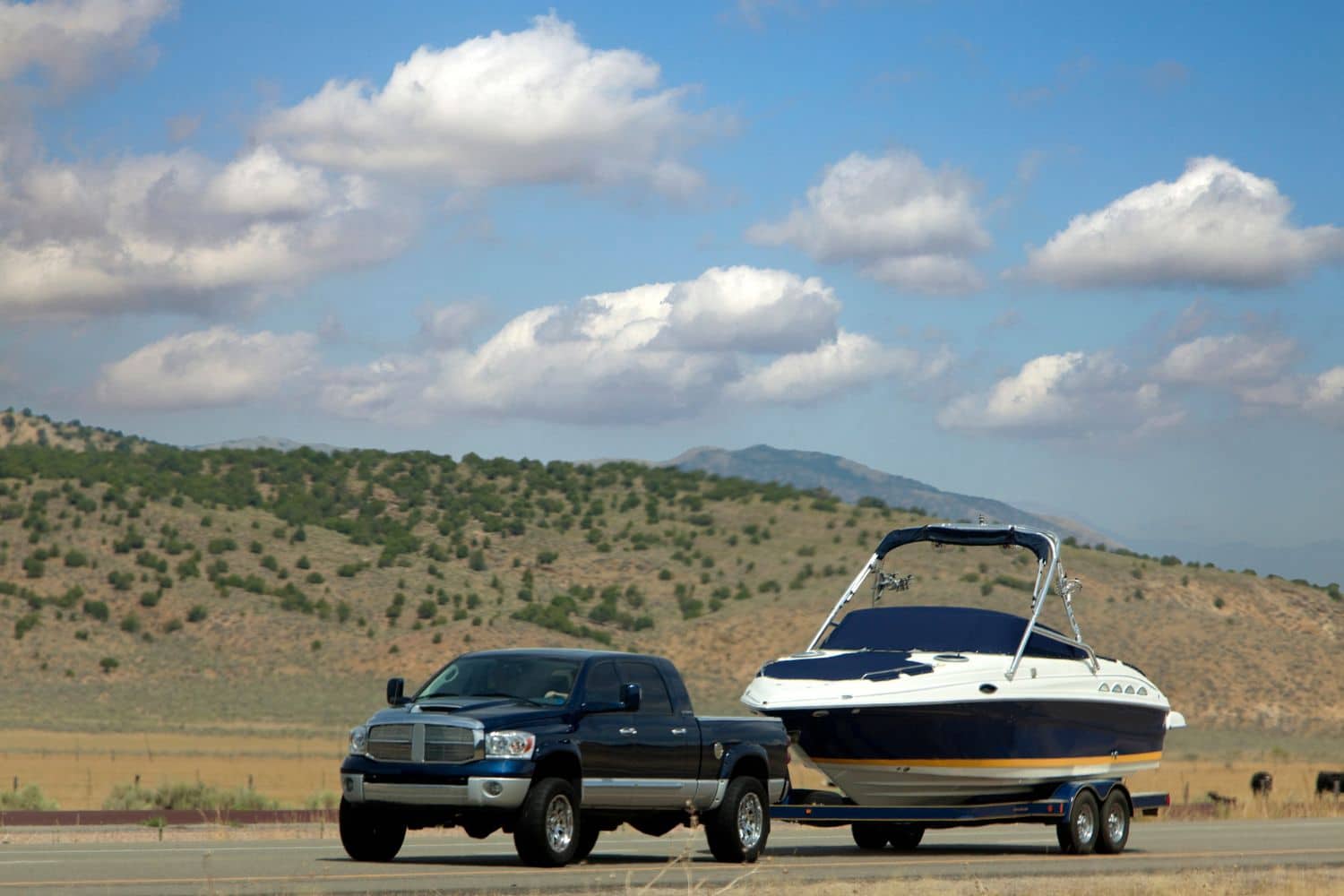
Towing a boat or trailing a boat refers to transporting or hauling a boat to any destination using a vehicle and a trailer to get it there. To put it simply, trailing means pulling something behind you, so trailing a boat means pulling a boat.
What Is The Best Way To Tow A Boat?
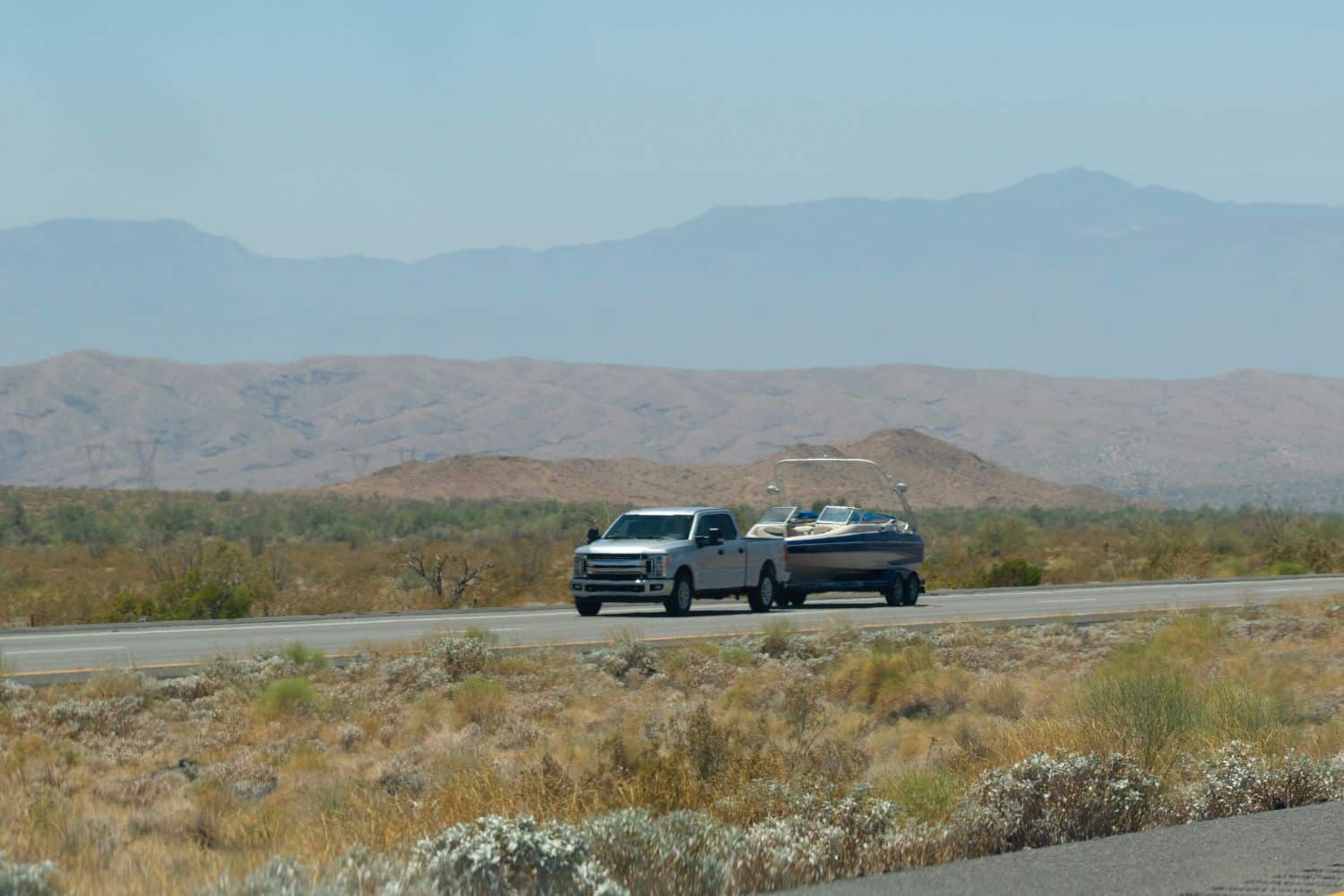
There is a quick and straightforward way to tow a boat, but first, you must perform a safety inspection on the hitch. Once that’s done, you can follow the list below.
- Back your vehicle up to the nose of the boat. Raise the hitch of the boat a couple of inches from the tongue of the vehicle. Back up slowly so your vehicle is just under the towing hitch of the boat. After that, lower the towing hitch down to the car.
- Once you have coupled the boat to the hitch of your vehicle, lock the lever on the towing hitch and hook the chains on both sides of the tongue on the car.
- Make sure there is a 6-12-inch clearance between the chain and the ground.
Do you need a new hitch for your trailer? We offer trailer hitches in KY.
How Fast Can You Drive While Towing A Boat?
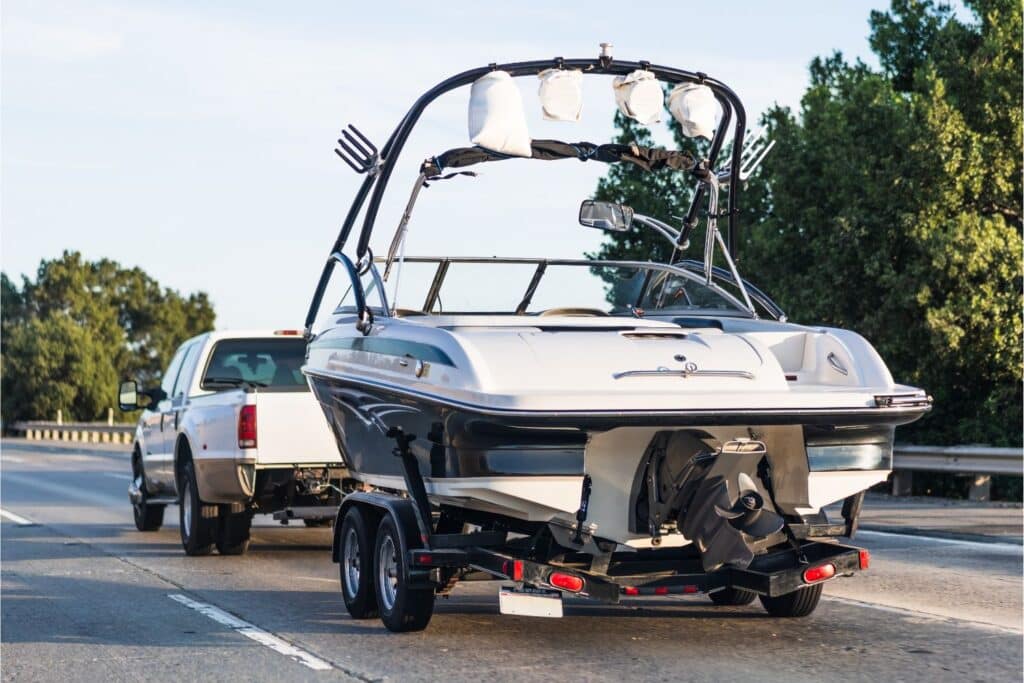
Boat manufacturers recommend a 60-70 mph speed when driving down an interstate while towing a boat. Driving faster than the recommended speed may cause damage to the towing hitch and cause the boat to lose balance and flip. At higher speeds, the stopping distance shortens, and you cannot stop the boat in time, which could result in a collision.
How Much Does An Average Boat Weigh?
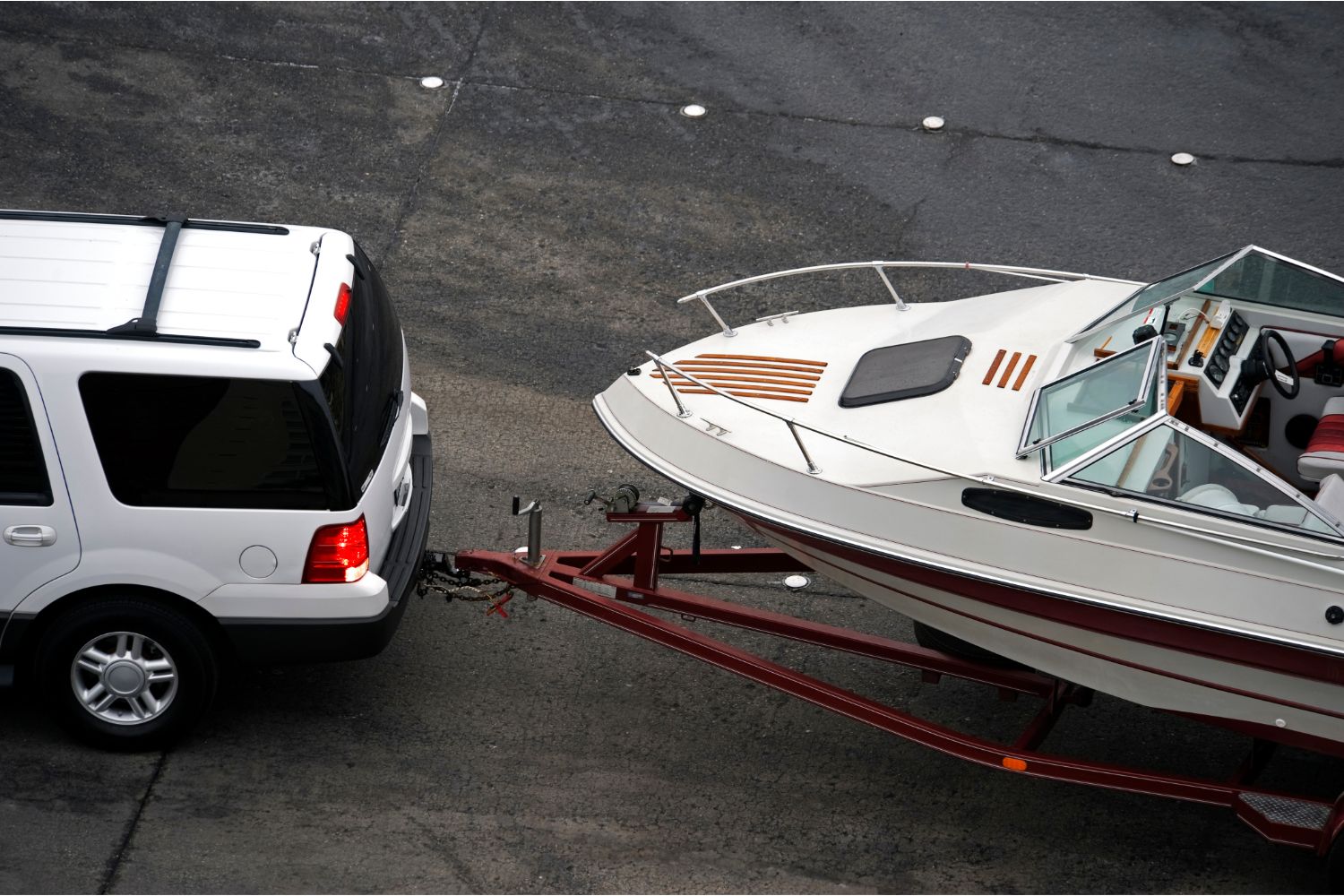
The average weight of boats varies depending on the type of boat. In the section below, we’ll show you the type of boat as well as the weight of the boat and what vehicle can be used for towing a boat.
| Types Of Boats | The Average Weight Of The Boat | Vehicle Towing A Boat |
| PWC boats | Weighs: between 500 to 1,500 lbs | Crossover, SUV |
| Bowrider boats | Weighs: between 2,500 to 3500 lbs | Suv, truck |
| Bay boats | Weighs: between 800 to 1500 lbs | Crossover, SUV |
| Catamaran boats | Weighs: between 1,120 to 2,000 lbs | Truck |
What Towing Capacity Do You Need To Tow A Boat?
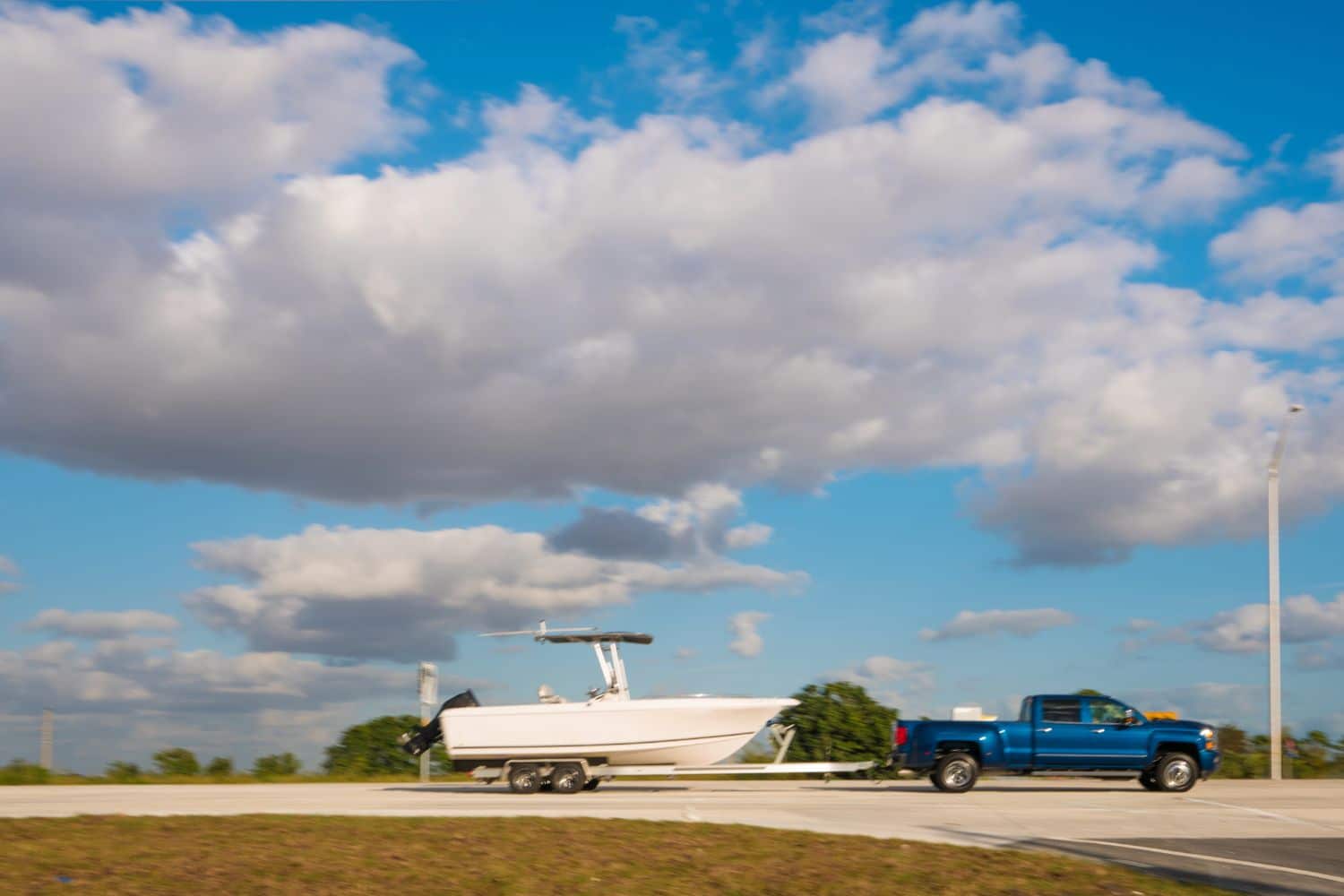
The average capacity you need for towing a boat is one that can pull an average weight of 1,800 lbs. Most towing vehicles don’t have a problem towing a boat that weighs between 1,000 to 2,000 lbs. But since every vehicle differs, you must check the GVWR (gross vehicle weight rating) sticker. You can find the sticker on the side of the driver-side door jam.
You can also find the GVWR sticker on the boat’s rear to ensure you don’t exceed the limit. You can also see the tongue capacity, which is located on the gooseneck on the back of the car. There is often a question of what vehicle can tow more than others. We dove into this topic in our article about truck towing capacity!
Towing A Boat For Long Distance
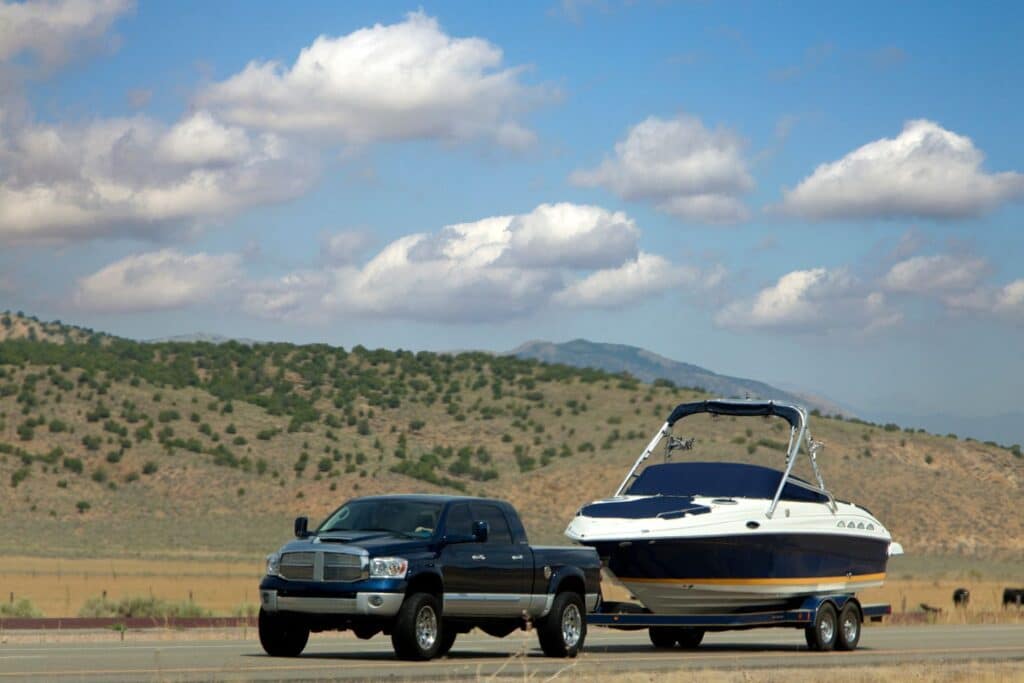
You can definitely tow a boat long distances, but before you tow a boat for a long distance, there needs to be some preparation. We’ll go over some easy checklist preparation steps to prepare your boat for long distances so that you do not damage either the boat or your vehicle.
- First, don’t pack everything on one side of the boat. Try distributing the weight all over the boat and packing some luggage in the bed of the pickup truck.
- Second, walk around the trailer and torque the lug nuts on the boat trailer tires. Make sure they are tight so that you don’t have a tire flying around when driving down an interstate.
- Third, after you have packed everything in your boat, check the tire pressure of the boat trailer and the spare tire.
- Fourth, you must ensure the boat is level since an un-level trailer could be very dangerous to drive. You will have a higher risk of fishtailing and loss of steering capability. To see if the boat’s trailer is level, you can place the 4’-foot level on the fender or eyeball it. Make sure you level the trailer after you have loaded the boat as well. The boat’s weight will shift if leveling is done before loading.
- Fifth, hitch your boat’s trailer to the truck’s gooseneck. After connecting the trailer, make sure to wrap your trailer with plastic before you cover it. If you’re towing the boat for a long distance with just the cover and not protecting the gunnel of your boat with plastic wrap would cause scratches on your trailer.
- Sixth, after you have wrapped the trailer with plastic, you can cover the boat. Covering the boat is very important if you have loaded the boat with your gear. You don’t want equipment flying out in the wind. Even if you don’t have anything in your trailer, we recommend you cover your boat so that the inside of the boat doesn’t get damaged.
- Seventh, once the weight is distributed all over the boat, and the boat is level, the last step is to walk around the boat to ensure all the trailer lights function properly. Check the brake light, the turn lights, and the reverse lights.
- Eighth, Once you are packed up, everything is secure, all lights work, you are good to go; enjoy your trip.
Best Way To Tow A Boat Out Of Water
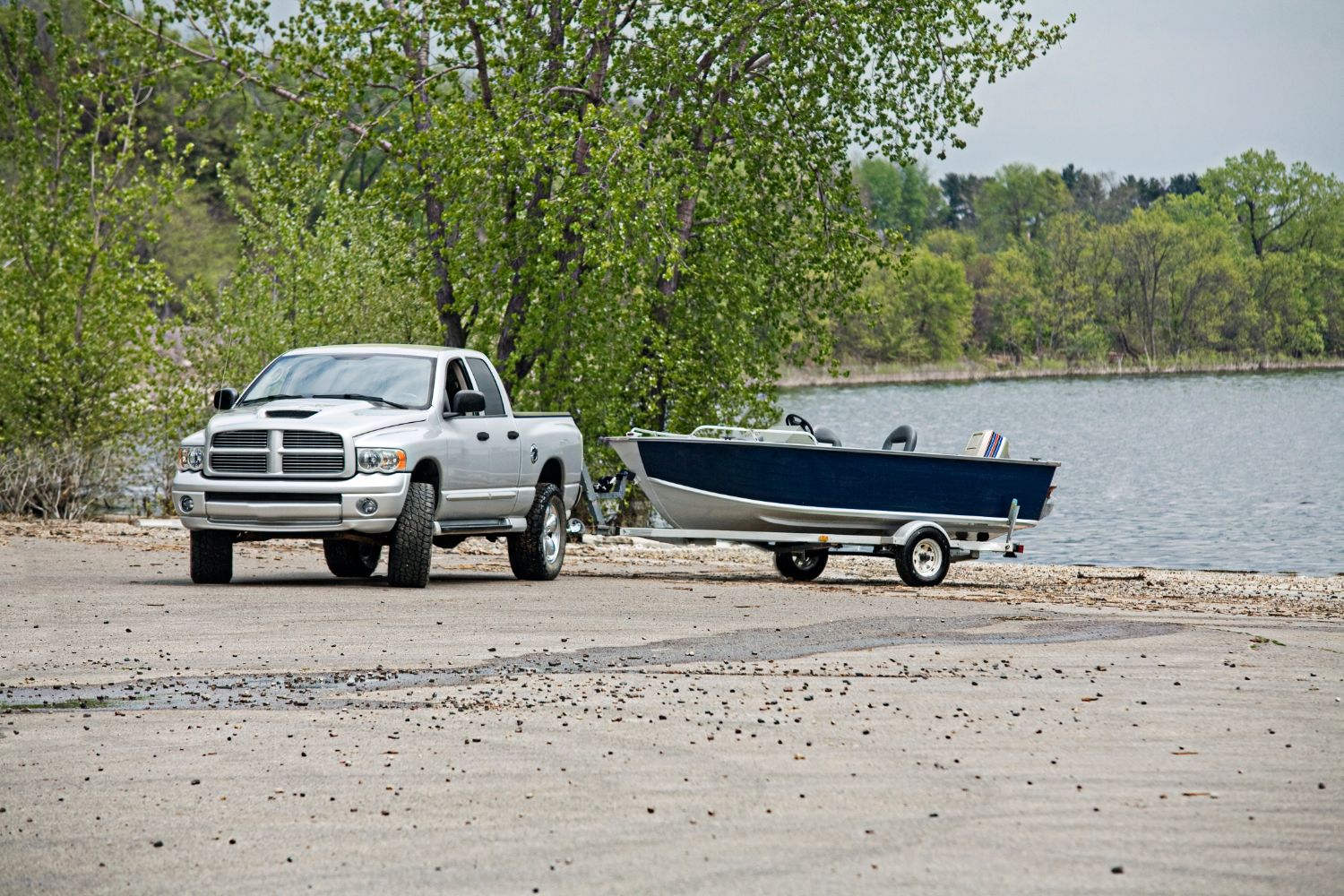
There are many tricks to towing a boat in the water and out of the water. The easy way is to first back up your towing vehicle with the trailer straight. Lower the trailer to about the fender of the car and drive your boat straight on the trailer; if you’re having difficulties getting the boat on the trailer, try lowering or raising the tow, and adjust the trailer to align straight up with the trailer.
After your boat is secured on the trailer, get back in the vehicle and tilt the tongue of the gooseneck. If you don’t tilt your trailer when towing a boat in the water, the boat’s engine will hit the ramp. We recommend you get a second person when towing a boat. One in the truck and one in the vehicle.
3 Best Types Of Boat Trailers
If you have a boat or are looking to buy a boat, you will need a boat trailer to haul your boat from your home to the lake. Boat trailers are excellent investments since you can bring the boat anywhere, at any time. You could also use the trailer to store your boat on as well. There are multiple boat trailers, each with different costs, advantages, and disadvantages. Let’s take a deeper look below
Bunk Trailers
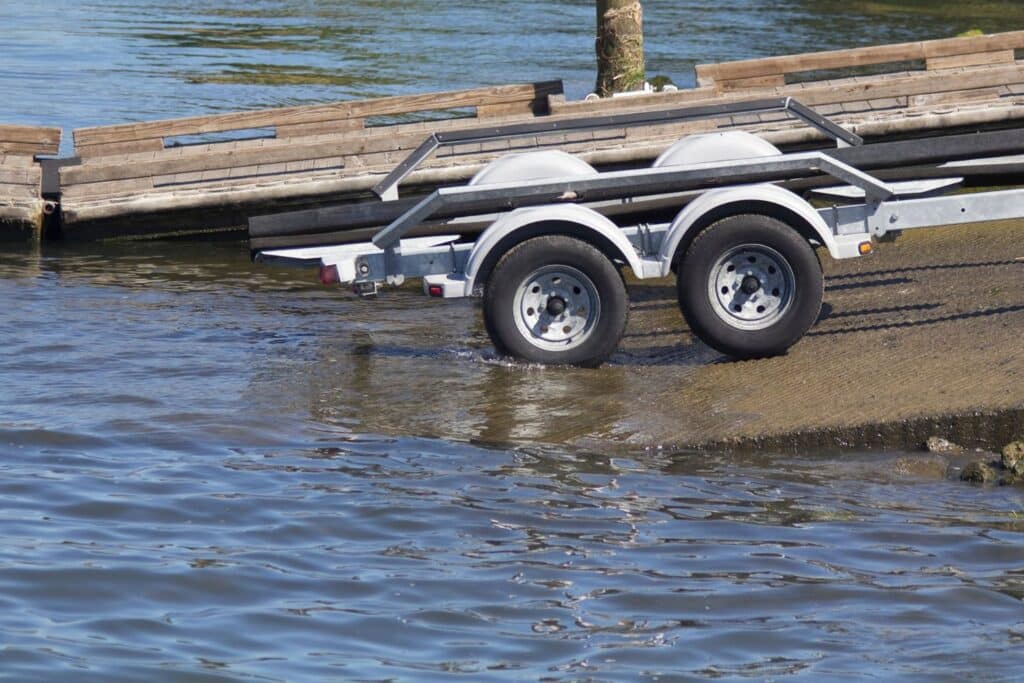
Bunk trailers are one of the most common trailers for boats under 19’. Bunk trailers are affordable and have a lower maintenance requirement than other boat trailers. Bunk trailers also help to support and protect the boat keel with pressure-treated boards running on the side of the trailer that spread the trailer’s weight. Bunk trailers are simple and easy to use.
Bunk Trailer Cost
Depending on the material and the number of axles (single or tandem axles), these trailers cost between $1,600 & $5,800
Bunk Trailer Advantages
- Affordable
- Simple to unload and load a boat on land
- Little maintenance
- Has fewer parts
- Bunk trailers do not require deep water at the ramp to unload a boat
Bunk Trailer Disadvantages
- Doesn’t haul boats bigger than 19’
- Difficult to launch and recover the trailer
Float-On Trailers
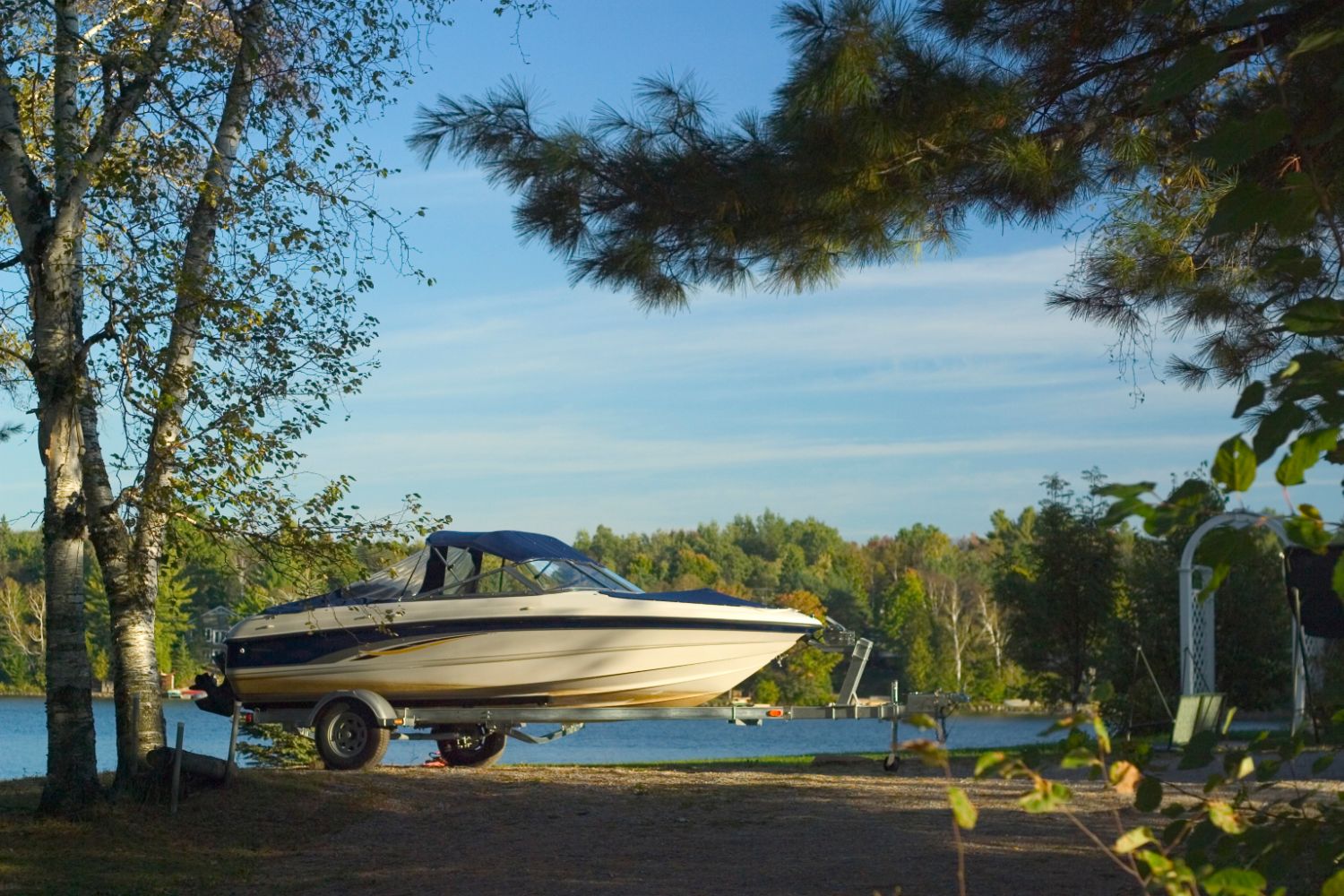
Float-on trailers are for bigger types of boats that require the need to be submerged deep in the water. Float-on trailers give you the ability to load and unload your boat in the water.
Float-On trailers cost
Depending if the trailer is aluminum or steel, the average size float on trailers costs between $3,000 & $9,760
Float-on Trailers Advantages
- Easy to launch and recover in water
- Can also haul small to medium-sized boats
- Great maneuverability
- Durable and long-lasting
Float-on Trailers Disadvantages
- More maintenance required
- Expensive
Roller trailers
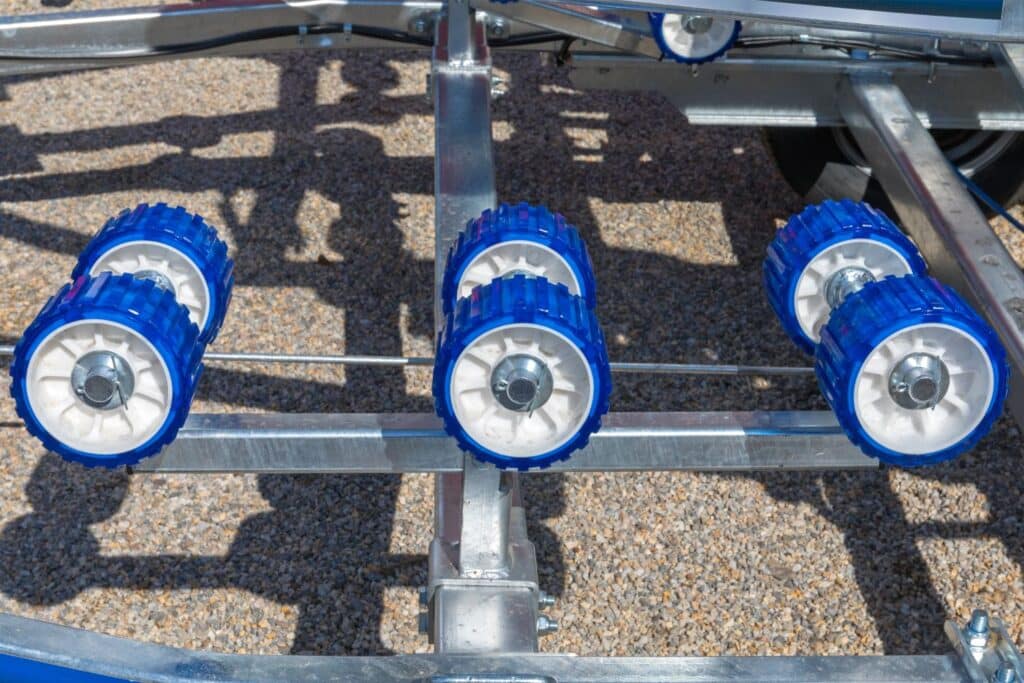
Roller trailers are ideal for loading and unloading boats on narrow ramps. Roller trailers are highly maneuverable, as well as durable, and made of long-lasting materials. Roller trailers, unlike float-on trailers, do not need to be completely submerged in water to load a boat. This is a significant benefit for a roller trailer because the parts are not exposed to water, reducing the risk of rusting. Roller trailers are great for rocky and shallow ramps as well.
Roller trailers cost
Depending on the material and size, the average cost for a roller trailer cost ranges between $1,000 & $12,000.
Roller trailer advantages
- Easy to launch and recover a boat
- It can be used as boat storage on land
- It doesn’t need to be submerged in water
- Great for any sized boats
- Great for rocky and shallow ramps
Roller trailer disadvantages
- Has high maintenance costs
- It needs more support for the hull of bigger boats
Trailers in Bowling Green, Kentucky
If you are looking for a trailer to haul your load, contact us to get some help! We have been in the trailer business for many years, so we would be happy to help answer any questions you may have about boat trailers!
